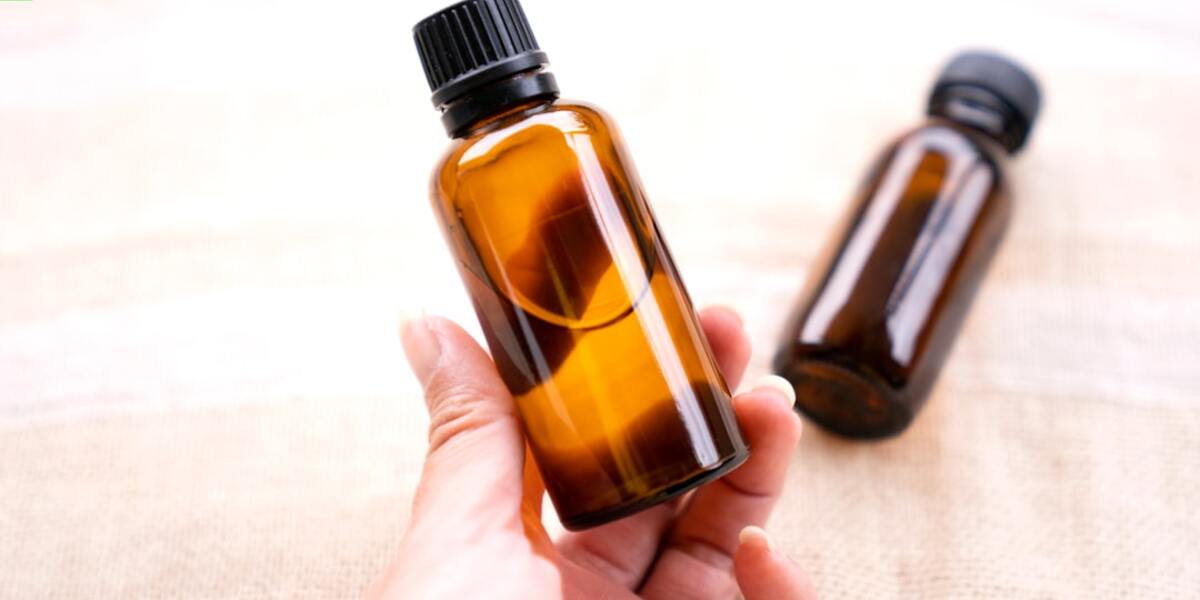Can Prenatal Vitamins Help Hair Growth? Exploring the Science Behind it
Frequently asked by many, “can prenatal vitamins help hair growth?” is a question that warrants exploration and understanding. With the popularity of these vitamins surging in recent years due to their potential health benefits for expecting mothers, there has been speculation on whether they could contribute to improving not only your baby’s health but also your hair quality.
While its primary function may be aiding pregnant women’s nutritional needs, some believe that prenatal vitamins can stimulate hair growth even outside pregnancy. This blog post goes beyond myths and hearsay as we delve into the science behind this theory – dissecting each ingredient’s role in promoting healthier locks or if any truth supports this assertion at all.
Did you know?
Interestingly, prenatal vitamins are often recommended for hair growth due to their high levels of specific nutrients like folic acid and biotin – both known promoters of healthy hair. However, there’s no scientific evidence confirming they work better than standard multi-vitamins in promoting hair health.
Maximizing Hair Health: The Role of Prenatal Vitamins
In the pursuit of maintaining excellent hair health, prenatal vitamins have become a staple discussion. While conventionally meant for pregnant women to nourish themselves and their developing babies, these versatile supplements are now recognized by many beauty enthusiasts and professionals as an ally in promoting healthier and faster hair growth.
Prenatal vitamins often contain higher levels of nutrients essential for hair growth than regular multivitamins. They include:
- Biotin, which improves the body’s keratin infrastructure.
- Folic Acid, which speeds up cell division and contributes to natural growth processes in the body, including hair growth.
- Iron, which is crucial in addressing conditions like thinning hair or loss due to deficiency.
These supplements also effectively work on the scalp, helping individuals achieve lush locks.
Understanding the Nutrient Profile in Prenatal Supplements
Prenatal vitamins are often recommended by doctors during pregnancy, and for a good reason. They have an impressive nutrient profile that can contribute to several health benefits, one of which could be hair growth.
Firstly, prenatal supplements contain Folic Acid or folate in abundance. This B-vitamin plays a significant role in cell regeneration, affecting your hair cells too. It promotes the development of healthy new cells that boost both the quality and quantity of your tresses.
Second on our list is Iron – another prominent component found in prenatal vitamins. When you have ample iron levels in your body, oxygen transportation to the follicles improves drastically; this aids better hair growth rates due to improved cell metabolism at scalp level.
The third essential ingredient present is Vitamin D – research has highlighted its influence on creating new follicles through which would eventually grow more strands leading towards fuller looking locks.
Another vital constituent partaking heavily into promoting healthier and faster-growing locks are Omega-3 fatty acids; they aid maintaining overall hydration conditions of hairs while curbing excessive dryness thus preventing unwanted breakages thereby indirectly aiding stronger mane long term sustainability efforts.
Debunking Myths: Can Prenatal Vitamins Target Hair Growth?
While most of us have heard about prenatal vitamins boosting hair growth, it’s essential to separate fact from fiction. When understanding the link between prenatal vitamins and hair health, we must first know that these supplements are primarily formulated for pregnant women or those trying to conceive. However, their beneficial properties can also influence our tresses.
One common myth is that taking prenatal vitamins when not pregnant causes excessive hair growth—this statement isn’t entirely accurate. Although these contain high concentrations of nutrients like folic acid, iron and biotin thought to promote healthy locks—the truth lies in knowing how they work with your body.
The increased levels of hormones during pregnancy often result in thicker and faster-growing hair; a phenomenon attributed to more follicles entering what’s known as the ‘growth phase’. The inclusion of prenatals merely assists this process rather than initiating it independently.
Prenatal vitamins do provide an array of nutrients critical for overall body function—and yes—that includes fortifying the integumentary system (our skin cells—including scalp and hairs). Biotin combined with other vital elements like Vitamin D helps maintain healthier strands by replenishing necessary compounds needed for robust mane structure.
However relevant here—it doesn’t support substantial surge unless you were initially deficient. Hence if used outside maternity periods—they may assist marginal benefits but hardly anything dramatic!
A Closer Look at Specific Vitamins for Hair Enhancement
There’s a growing trend among hair care enthusiasts, as they increasingly turn towards prenatal vitamins for enhancing their tresses. This shift often poses the key question – ‘Can prenatal vitamins help in hair growth’? While these supplements are primarily formulated to support pregnant women and their unborn children’s health, it seems that many non-pregnant individuals have started using them too for promoting healthier, shinier locks.
Now let us scrutinize this phenomenon by delving into specific nutrients typically found within these pills. One of the main components of any good-quality prenatal vitamin is Biotin or Vitamin B7, known popularly in beauty circles as ‘the Hair Growth Hero’. It plays an instrumental role in keratin production—a type of protein vital for maintaining healthy skin, nails and most importantly —hair!
An adequate supply directly aids faster and thicker hair regrowth while reducing excessive shedding.
Another potent inclusion is Folic Acid or Vitamin B9 which assists cell regeneration including those responsible for your mane growth. Its deficiency can lead to sluggish follicular activity resulting in dull strands prone to breaching off easily. Meanwhile Iron ensures proper oxygenation through bloodstream keeping each strand nourished from root to tip thereby fostering overall better density and vigour.
Analyzing Biotin’s Impact on Keratin Production
Biotin, widely recognized in the health and beauty industry as Vitamin B7 or H, plays a significant role in hair growth. Understanding its impacts requires analyzing it in relation to keratin production.
Keratin is an essential protein that forms the building block of your skin, nails and particularly your hair. When there’s enough biotin present within your body, it aids metabolizing amino acids which are necessary for kerating production-this alone highlights why many experts consider biotin crucial for maintaining healthy locks.
What makes this element even more interesting, especially answering our query “can prenatal vitamins help hair growth”, lies enshrined inside every single container of these supplements-Biotin! Prenatal multivitamins are indeed rich sources of biotin along with other vital nutrients needed during pregnancy phases. But more than just supporting fetal development processes; digesting these can positively influence one’s overall hair-health too!
Data derived from several studies points strongly towards a connection between taking biotins via prenatals resulting into enhanced Hair Growth rates – something achievable due to increased Keratin levels therein – caused by ingesting higher doses daily than what’s typically found among regular over-the-counter vitamin capsules/tablets designed purely targeting grownups’ needs rather than expecting women only.
However before diving deep investing on high-biotinned prenatal tablets wishing boosting those strands’ lengths outta blue overnight; important realizing such results vary person-to-person depending upon genetic factors plus current nutrition status etcetera!!!
Unveiling the Importance of Folic Acid for Follicle Vitality
Folic acid, also known as vitamin B9, serves a crucial role in hair growth and vitality. This water-soluble nutrient aids in cell generation, which is vital for rapid tissue growth like that observed in your follicles.
One might question – can prenatal vitamins help with hair growth? The answer lies primarily within the high levels of folic acid inherent to these supplements. Prenatal vitamins provide a substantial boost compared to regular multivitamins when it comes to folic acid content.
Maintaining adequate levels of this essential vitamin can facilitate healthy division and growth of cells, including those responsible for generating new hair. Follicle vitality indeed depends on an ongoing supply of nutrients like folic acid directly impacting its strength and longevity.
The significance isn’t confined merely within natural biological processes; external factors such as environmental stressors or age-related decline make maintaining optimal vitamin B9 intake necessary even more so as time advances – important information keeping our focus centered around 2023’s current conditions!
Deprivation from enough Folic Acid could potentially result into premature greying or extensive thinning due excessive fallout without sufficient replacement- issues we unfortunately encounter all-too-commonly today yet are avoidable with appropriate precautions taken onboard rhymed alongside consistent care schedules established under expert guidance concerning individual requirements suited per personalized circumstances.
Beyond Pregnancy: Who Should Consider Prenatal Vitamins?
The benefits of prenatal vitamins extend beyond pregnancy and are increasingly being recognized for their potential in promoting hair growth. These supplements, typically prescribed to pregnant women, pack a powerful punch with essential nutrients like folic acid, iron, zinc and biotin – all known contributors towards maintaining healthy tresses.
Prenatal vitamins have grown in popularity amongst non-pregnant individuals who desire thicker and shinier locks. The rationale behind this trend is the perceived efficacy of these multivitamins in boosting one’s overall health status which indirectly aids natural hair development processes. As such, if you’re battling thinning hair or simply wish to enhance your existing mane’s vitality; considering prenatal vitamins could be a practical move.
Promising anecdotal evidence supports the use of prenatal vitamins for accelerated hair growth outside pregnancy, but clinical research is still slightly inconclusive. Nurturing your body with a balanced diet and careful supplementation remains crucial for healthy hair growth. Always consult healthcare professionals before adding any new dietary supplement to your routine, as individual responses can vary greatly.
Assessing Benefits for Non-Pregnant Individuals Seeking Hair Solutions
Prenatal vitamins, widely acknowledged as pregnancy companions, are now being hailed for their potential benefits beyond the gestational period. One area that has sparked interest among non-pregnant individuals is hair growth.
A robust blend of essential nutrients, including folic acid, iron, and biotin, underpins the science behind prenatal vitamins. These well-renowned ingredients play critical roles in healthy hair development. Let’s explore how these elements can contribute to enhanced hair health:
1) Folic Acid: Being an accelerator for cell generation, it plays a pivotal role in stimulating new hair follicles while repairing damaged ones.
2) Iron: This mineral aids red blood cells transportation oxygen throughout the body including your scalp which could result in accelerated growth and healthier strands.
3) Biotin: A popular ingredient used due to its property of strengthening keratin infrastructure – contributing towards thicker manes combating against breakage or thinning out problems faced by many individuals worldwide .
While predominantly aimed at supporting pregnant women’s health needs , this nutrient-packed supplement might provide unexpected perks when integrated into regular use amongst those seeking solutions for lackluster locks . Indeed if you’re not expecting , consuming prenatal supplements won’t put any adverse effect on one’s overall physiological accomplishments but may enhance beauty endeavours such as promoting luscious tresses .
Evaluating Safety and Dosage Recommendations for Optimal Hair Health
“Prenatal vitamins are often associated with the stages of pregnancy, but they also have a hidden talent – promoting healthier hair growth. But before you start popping these nutritional supplements for luscious locks, it’s important to evaluate their safety and understand proper dosage recommendations.
Safety should always be your top priority when considering any supplement regimen. Prenatal vitamins include essential nutrients such as folic acid, iron and biotin which can stimulate hair growth; however, an excess intake might lead to side effects like nausea or constipation. Always consult with your healthcare provider prior to starting prenatal vitamins for non-pregnancy related reasons.
When determining optimal dosages for supporting hair health:
1) Folic Acid: An adequate daily dose ranges from 400-800 mcg per day.
2) Iron: Aim for about 18 mg each day unless otherwise recommended by a doctor.
3) Biotin: For adults over the age of 19, roughly around 30 mcg/day is considered safe and effective.
It’s worth noting that results may vary between individuals due to various factors including diet, overall health conditions and genetic predispositions towards certain types of hair loss patterns.
Conclusion
In conclusion, the query “can prenatal vitamins help hair growth?” isn’t as straightforward as it might seem. These little nutrient-packed pills can indeed foster a conducive environment for enhanced hair growth by supplying key nutrients in more significant amounts than regular multivitamins. However, remember – they are not magic bullets and shouldn’t be considered your first line of defense against severe hair loss or thinning.
We invite you to continue exploring our website where we dive deeper into this topic amongst others concerning ‘Hair Growth Vitamins’. Our comprehensive resources cover everything from scientific researches to practical tips about maximizing vitamin intake for optimal hair health. Packed with insights and expert advice, these articles will equip you with knowledge that could potentially turn around your stress-filled bad-hair-days into joyful good-hair-journeys!







